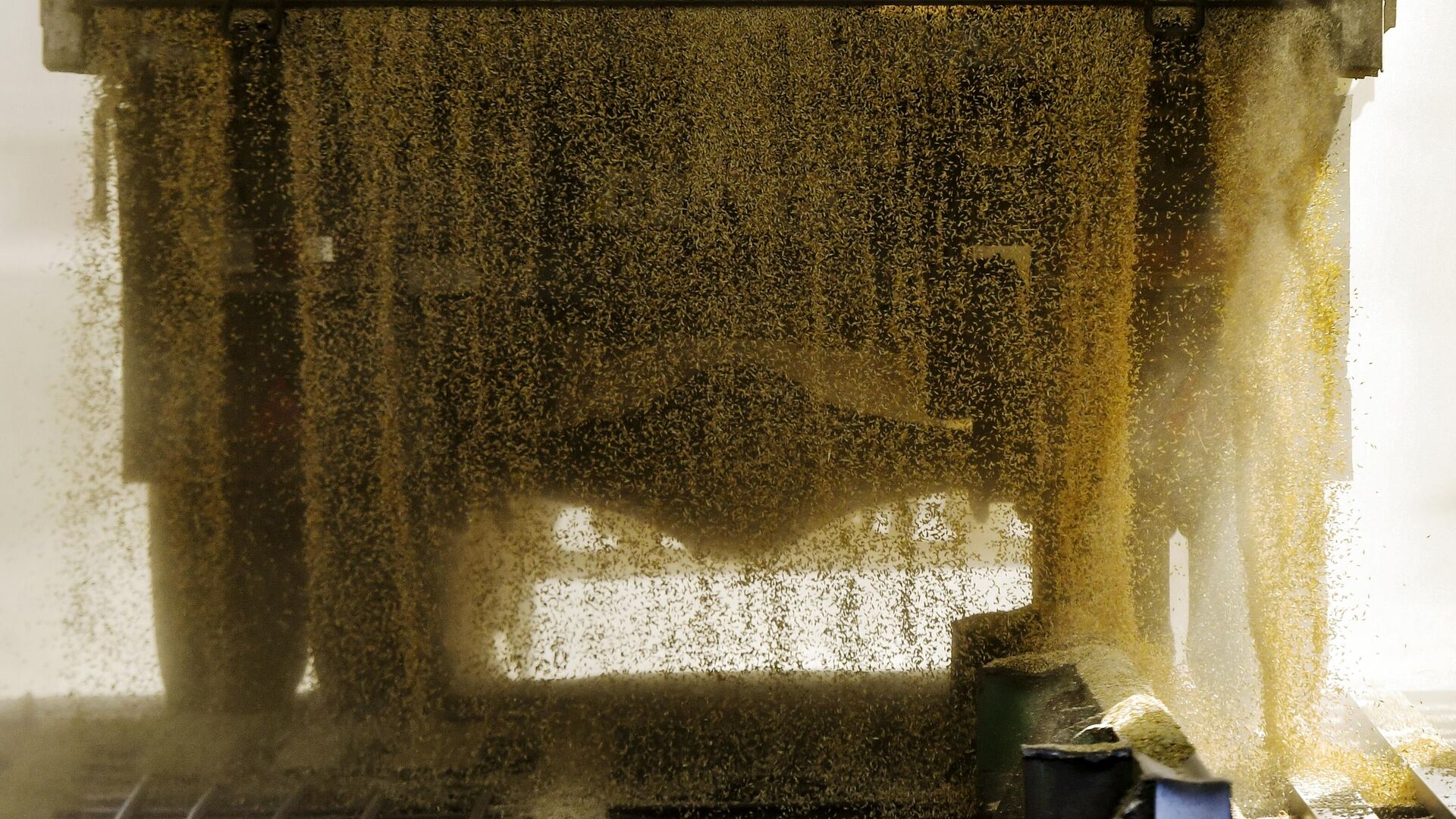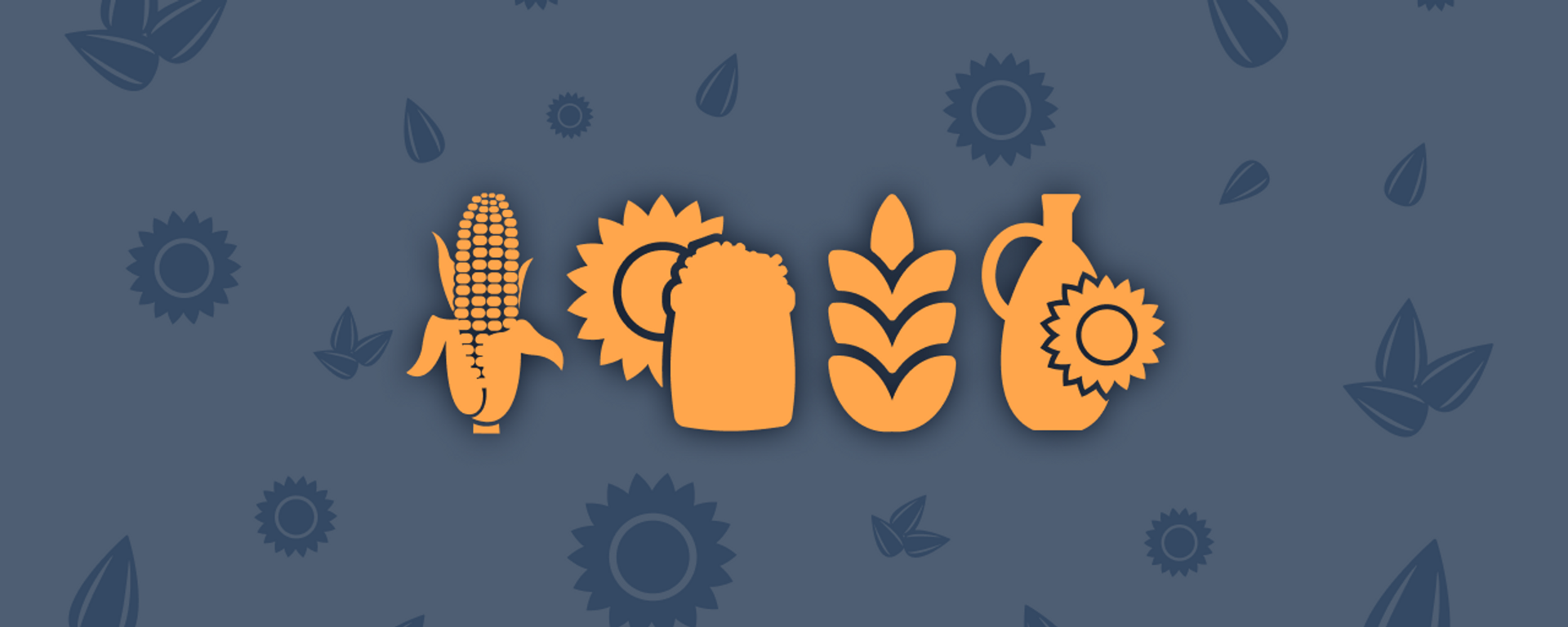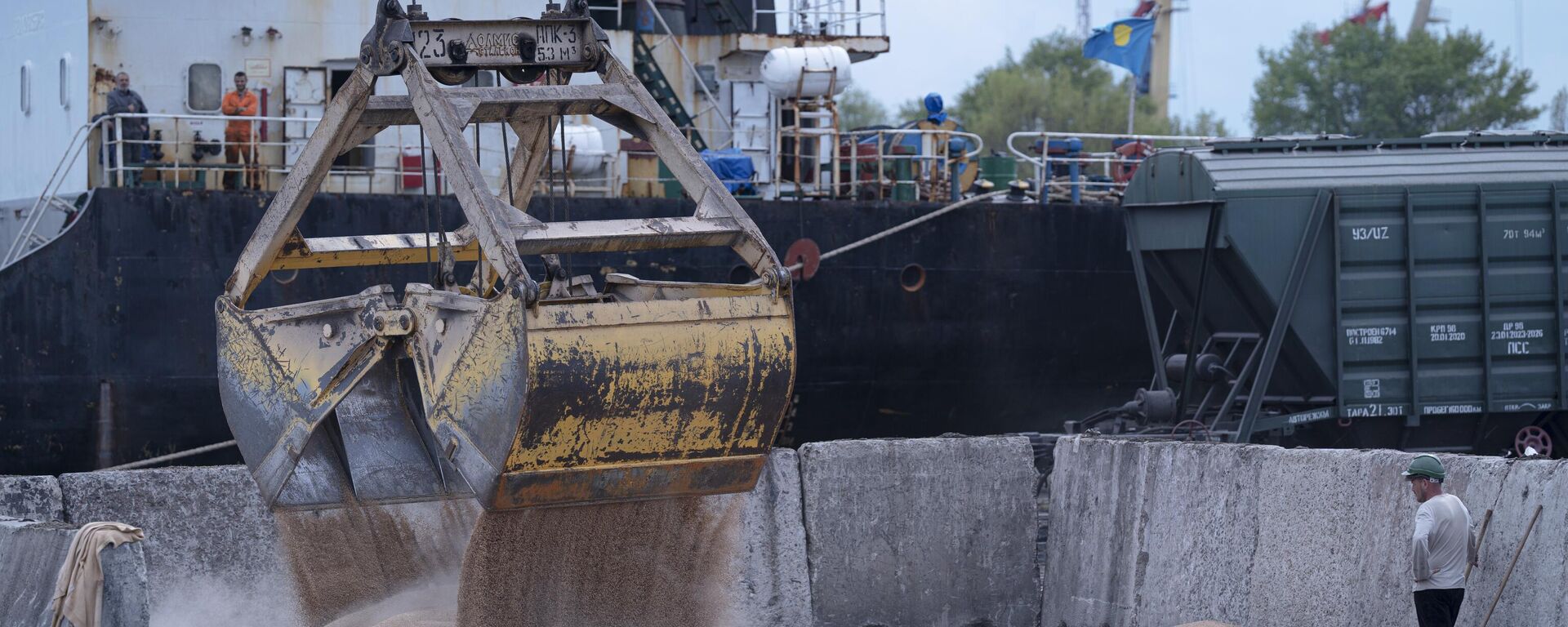Black Sea Grain Deal De Facto Terminated: Kremlin
10:59 17.07.2023 (Updated: 10:50 03.08.2023)

© Sputnik
/ Subscribe
The validity period of the Black Sea Grain Deal ends on July 17. Earlier this month, Russian President's spokesman Dmitry Peskov told Sputnik that there were no statements from the Russian side regarding the extension of the deal.
The grain deal agreement has de facto been terminated, it has been stopped working, however Russia will immediately return to its implementation after the Russian part of the conditions is fulfilled, Kremlin spokesman Dmitry Peskov said on Monday.
"The Black Sea agreements have de facto stopped working today. As Russian President said earlier, the deadline expires on July 17. Unfortunately, the part concerning Russia of these Black Sea agreements has not been fulfilled so far. Therefore, its [graindeal] work is terminated," Peskov told a briefing.
As soon as the Russian part of the agreements is fulfilled, Russia "will return to the implementation of this deal immediately," the spokesman said.
"It stopped. The grain deal has stopped. As soon as the Russian part [of the deal] is fulfilled, the Russian side will immediately return to the implementation of this transaction," the press secretary of the head of state stressed.
Earlier, Russian President Vladimir Putin, in a conversation with his colleague from South Africa Cyril Ramaphosa, said that the obligations to remove obstacles to the export of Russian food and fertilizers have not been fulfilled. Putin stressed during the conversation that the main purpose of the deal, namely the supply of grain to countries in need, including on the African continent, has not been implemented.
The Black Sea Initiative
In July 2022, the Black Sea Grain Agreement was signed, following mediation by the United Nations and Turkey. This agreement established a secure maritime corridor, allowing vessels carrying food and fertilizers from Black Sea ports, specifically Ukrainian grain, to navigate through areas controlled by the Russian Navy.
Russia's decision to agree to the deal can be attributed to two primary factors.
Firstly, Western countries provided assurances that they would facilitate the export of Russian food and fertilizers to Europe and other nations by easing or lifting constraints such as import limitations, secondary sanctions threats, and banking restrictions. This commitment from Western countries played a significant role in Russia's decision.
Secondly, the United Nations exerted moral pressure and issued dire warnings to Moscow. The UN emphasized that if Russia would hinder agricultural exports from Ukraine, which, like Russia, is a major global producer of essential foodstuffs such as wheat, barley, maize, and sunflower oil, it would pose a severe risk of famine in some of the world's most impoverished countries.
What Has Hindered the Deal's Implementation?
Despite a year passing since the signing of the Black Sea Grain Agreement, significant restrictions on Russian agricultural exports imposed by Western countries remain in effect. Russian exporters continue to face challenges, including difficulties in obtaining shipping insurance, ship maintenance services, and encountering obstacles in the banking sector. These limitations have resulted in Russian producers being cut off from global financial flows.
Furthermore, Ukrainian saboteurs disrupted a crucial artery used by Russia to transport ammonia, a vital component in nitrogen fertilizers. The Togliatti-Odessa ammonia pipeline suffered damage when a section was blown up, further exacerbating the challenges faced by Russian agricultural exporters.
Regarding the moral argument of meeting the needs of impoverished nations, it became apparent that this notion was somewhat deceptive. Vladimir Putin highlighted last fall that a mere 3-5 percent of supplies shipped from Ukraine were actually reaching needy countries. Instead, 35 percent of the supplies ended up in the European Union, with another 34 percent remaining in Turkey.
In his recent remarks, Putin once again emphasized the pressure Moscow has faced over the past year. Western countries have blamed the military operation in Ukraine for the rise in global food and fertilizer prices. These assertions have further strained diplomatic relations and added to the complexities surrounding the agricultural export situation.
"They decided to blame everything on Russia, to lay one’s own fault at someone else’s door. We have absolutely nothing to do with it," Putin said, recalling that the rise in prices actually began during the Covid crisis, when wealthy Western nations kicked off a money-printing spree and began to "rake in food from the world market with a shovel," putting poor countries "in a very difficult position." Unilateral sanctions against Russia only served to exacerbate the crisis, Putin outlined.
According to calculations made by Russian media on 15 July using the UN data, the EU continues to benefit most from the Black Sea grain agreement, receiving 12.4 million tons of grain, or 38% of all supplies, followed by Turkey with 9.9 million tons and China with 7.96 million tons. Italy (2.1 million tons), Spain (2.06 million tons), and the Netherlands (1.9 million tons) are each among the top importers in the EU.
In early June, the EU extended restrictions on the import of agricultural products of Ukraine to a number of Union countries until September 15. It was reported that, according to the decision, free circulation of products is allowed only in EU member states, except for Bulgaria, Hungary, Poland, Romania and Slovakia.
At the end of March, the prime ministers of a number of EU countries appealed to the head of the European Commission, Ursula von der Leyen, with a request to intervene in the crisis caused by the influx of grain from Ukraine.
The Russian president has multiple times stated that the country's interests that had to be taken into account within the deal were ignored.
He warned that Russia will stop taking part in the initiative on July 17 if Moscow's negotiating partners once more resorted to making bogus promises.
"Nothing, and I would like to emphasize this - nothing has been done at all in this regard. It’s been a one-sided relationship," Putin stated. "Despite this, we voluntarily extended this so-called deal many times. Many times. But listen: enough is enough."


